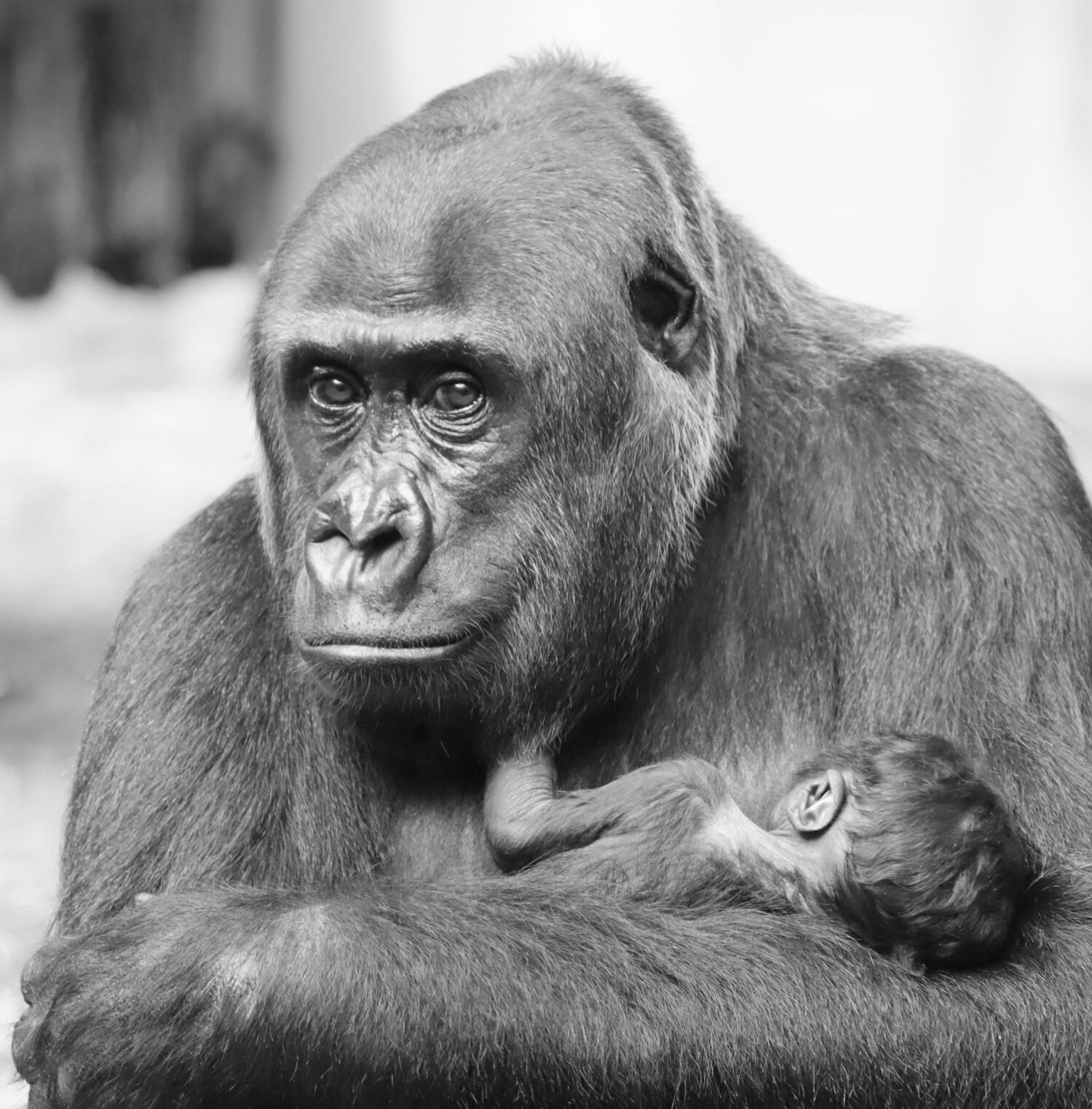The team at Zoo Berlin is mourning the loss of its gorilla baby. On Wednesday morning, keepers at the Primate House discovered the little ape, which was born on 3 March, dead in its mother’s arms. The first days following birth are always a critical phase. The mortality rate for young gorillas is significantly higher during that time, particularly with first-time mothers. Initial signs made the team cautiously optimistic: Djambala showed exemplary maternal instincts, and on Tuesday keepers observed the mother holding the baby to her breast, while the movements and noises made by the infant suggested it was suckling successfully. Based on observations made by keepers and the vet, the initial suspected cause of death is pneumonia resulting from amniotic fluid in the lungs. Djambala is currently still carrying her dead baby. This is natural behaviour that is also observed among gorilla mothers in the wild and should therefore not be prevented at Zoo Berlin. Only once she and the rest of the group have said their goodbyes and the mother has abandoned her young of her own accord will the infant be removed from the gorillas’ habitat and taken away for an autopsy to determine the cause of death. Until then, this part of the Primate House will remain inaccessible to guests.
Background
Western lowland gorillas are classified as “Critically Endangered” on the IUCN Red List of Threatened Species. Gorillas are the largest and heaviest apes in the world. Adult males can weigh around 220 kilos and reach up to two metres in height. Gorillas live in family groups led by dominant males known as “silverbacks” for the silver-grey hair they develop on their back and rump. According to estimates, there are currently only around 300,000 western lowland gorillas living in Africa – and that number is falling rapidly. More than half of these apes live in the Republic of the Congo. The reasons for the continuing population decline are habitat loss through deforestation and agriculture, hunting for bushmeat, and the transmission of disease through contact with humans.
